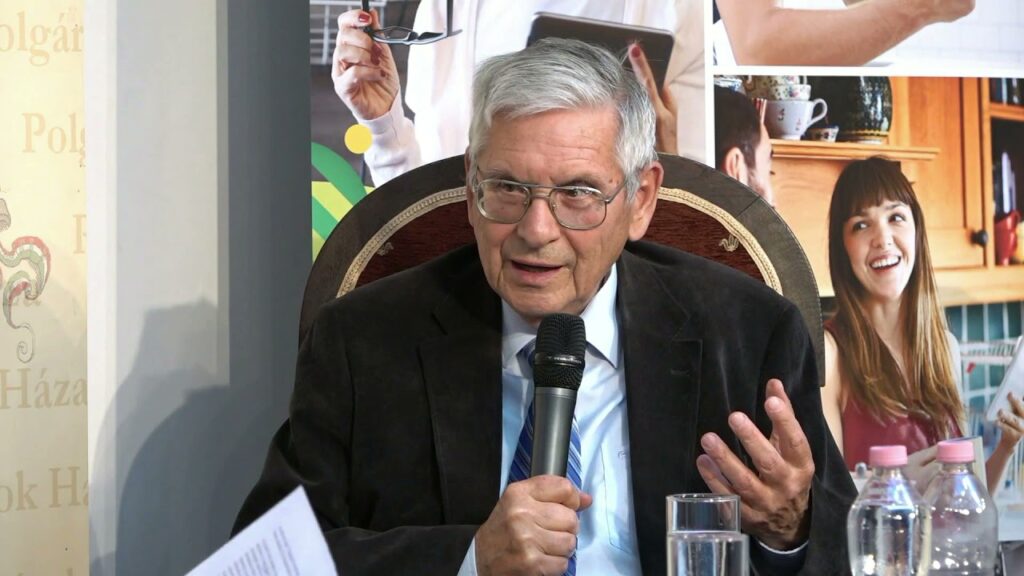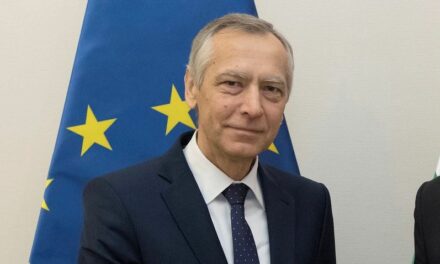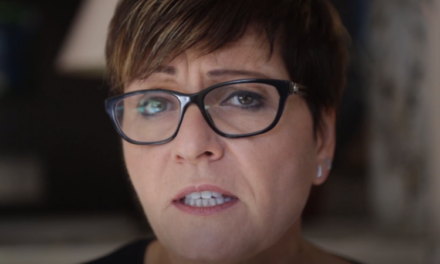In domestic political communication, the opposition to the Fidesz government is called the left, and in Western Europe it is usually the social democrats, the greens, the liberals and even the actual left, such as the German Die Linke - can be read in Magyar Hírlap, in Károly Lóránt's analysis.
However, this classification of these parties is very far from reality and can cause confusion, for example in the domestic context it is more correct to speak of globalists or Atlanticists and nationalists, similar to how the popular-nationalist and urbanist trends were separated between the two world wars.
After the 1959 Bad Godesberg program, the German social democrats, who can be regarded as a model in Western Europe, rejected the class struggle, the thesis of the fundamental opposition between the exploiting and exploited classes, and believed that socialism would be realized through reforms during the democratic cooperation of all social classes and strata. Their understanding became the characteristic program of the western left-wing parties that came to power: the social market economy.
Over the decades, however, the social base of the democratic left, the working class, practically disappeared , but the party remained , but separated from its social base, it continued to develop independently, increasingly forgetting the problems of those living on wages and salaries, and embraced such extreme ideologies as the Frankfurt School teaching, Karl Popper's open society, gender ideology or climate mania. John Schindler called this left the cultural left.
Similarly, with the loss of weight of the national entrepreneurial layer due to globalization, the right-wing also transformed into a "big-capitalist" right-wing (in Schindler's term corporate right), which was no longer interested in national affairs, national culture, or ensuring the essentials of the nation-state. The two sides, separated from their roots, found each other today in serving globalist interests and rejecting national aspirations. They constitute the policy-executive tool of the background power that funds them. Thus, one cannot be surprised that, for example, they are clearly interested in intensifying the Russian-Ukrainian conflict, since the goal is actually to impose the will of the background power on Russia.
In addition to the cultural left, however, there are smaller left-wing groups that have remained true to the original left-wing ideals, which included opposition to NATO itself, but more so to its expansion after the collapse of the Soviet Union. The positions of two such organizations are presented below. One is the Euromemorandum group of a few hundred economists, which has been criticizing the neoliberal policy of the European Union for a quarter of a century, and the other is the group of experts grouped around the French left-wing internet newspaper Le Monde Diplomatique, which publishes small studies from time to time in addition to daily news.
The Euromemorandum group brings together economists from around twenty countries who wish to provide an alternative to neoliberal policy for the European Union. Every year, they publish reports in which they criticize the policies of the union and in these they deal with what kind of policy, in their opinion, would serve the interests of the wider social strata. The 2022 report devotes a separate chapter to the war raging in Ukraine, explaining the reason for it and what the EU should do about it.
The memorandum, after condemning the attack on Ukraine, also points out that NATO's eastern expansion, despite the promises of former US President George HW Bush and his Secretary of State James Baker, poses a security threat to Russia. The Russians increasingly saw it this way after the Iraq war and the color revolutions, which led to the occupation of the Crimean peninsula and then to the attack on Ukraine. This, along with the unprecedented level of sanctions against Russia, has resulted in the world now on the brink of nuclear war…
...The study of Le Monde Diplomatique, published in February 2022, but before the outbreak of the war, under the title Ukraine and Russia, the road to war, strikes a similar note. According to the study, the termination of the Warsaw Pact should logically have led to the dissolution of NATO, which was created to counter the "Soviet threat". This moment offered a great opportunity to create a new European cooperation system for the integration of the "other Europe" seeking closer relations with the West. The timing seemed particularly favorable as Russia's elite, perhaps never more pro-Western, accepted the disintegration of its empire without a fight. But proposals for this, mainly from France, were dropped under pressure from the United States.

image: 2022plus
NATO, which celebrated its fiftieth anniversary in 1999, carried out its first expansion to the east (Hungary, Poland and the Czech Republic) and announced that it would continue to expand up to the borders of Russia. At the same time, NATO launched a war against Yugoslavia, which transformed the organization from a defensive to an offensive alliance, in clear violation of international law. The Russian elite, who had staked so much on their country's Western integration, felt betrayed: Russia was not treated as a partner worth rewarding for the elimination of the communist system, but as the big loser of the Cold War , who had to pay the geopolitical price of its defeat.
After coming to power in 2000, Putin made several gestures of goodwill towards Washington. He accepted the temporary deployment of American bases in Central Asia, closed Soviet-era bases in Cuba, and withdrew Russian troops from Kosovo. In return , Russia wanted the West to accept that the post-Soviet region, which it considered its backyard, would belong to its sphere of influence.
While the dominant countries of the European Union, France and Germany, were ready to accept this, the United States rejected it and tried to help NATO-friendly governments come to power by supporting the "colorful" revolutions taking place in the post-Soviet region. At the NATO summit in Bucharest in April 2008, the United States exerted strong pressure on its European allies to support Georgia's and Ukraine's bids to join NATO, even though the majority of Ukrainians opposed NATO membership at the time.
In late 2013, Europe and the United States supported the protests that Viktor Yanukovych , whose election in 2010 was recognized as meeting democratic standards. Moscow saw the West as supporting a coup in order to bring Ukraine into the Western fold at any cost. Subsequently, Russia saw its intervention in Ukraine—the annexation of Crimea and unofficial military support for Donbas separatists—as a legitimate response to the pro-Western coup in Kiev.
The Minsk Protocol, signed in September 2014, gave France and Germany the opportunity to regain control of events and seek a negotiated solution to the conflict, but this was blocked by the United States. Western Europeans, especially France, lacked the vision and political courage to block America's most provocative initiatives or to put forward a proposal that would prevent the re-emergence of fault lines on the continent.
So far, the study, and others could be cited, such as the icon of left-wing thought, Noam Chomsky , who in an interview last week spoke out against NATO's eastern expansion, adding that Donald Trump is the only Western statesman who could end the war.
The war is therefore not a matter for the Western left, but let us add that it is not for the right either. The initiator and driving force of the steps leading to war is the background power that controls the weak Western politicians who betray European interests.
Source: Magyar Hírlap
Author: economist Károly Lóránt
You can read the full opinion article here.
(Header image: nato.int)













